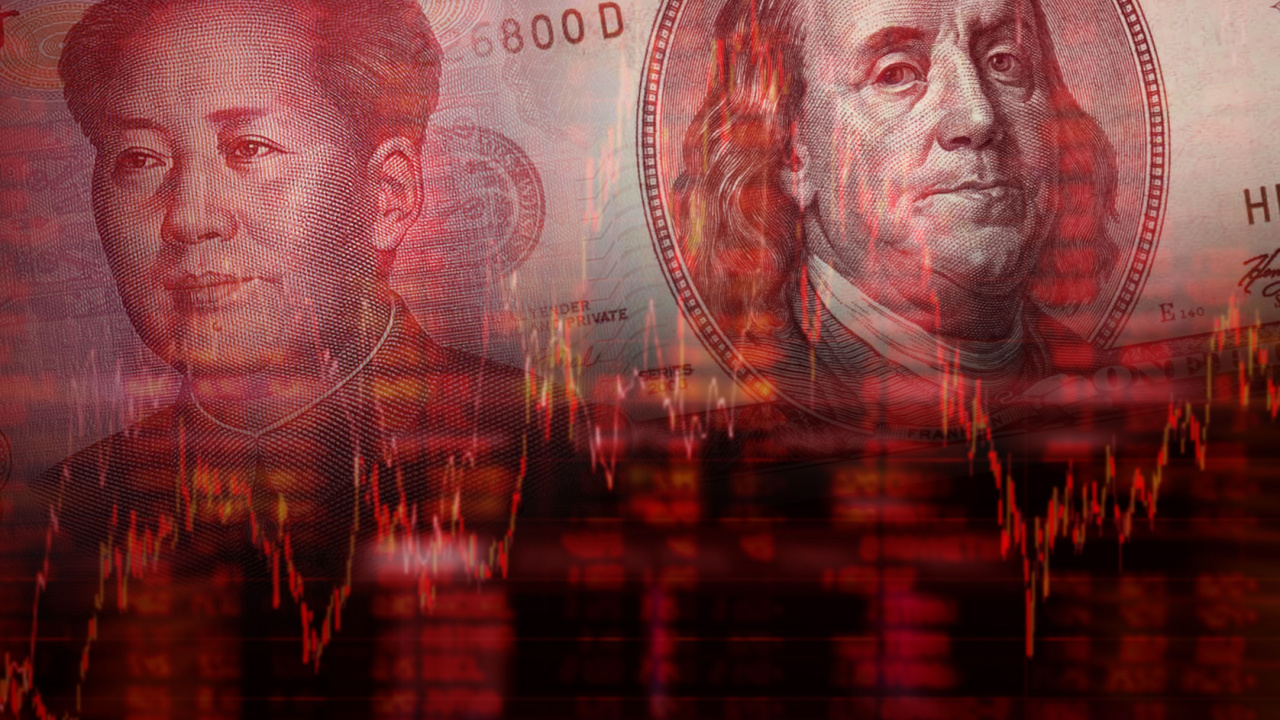
Moments after the Chinese yuan’s onshore exchange rate versus the U.S. dollar slumped to 7.2458 per dollar, the Peoples Bank of China responded by stating that it will prioritize stabilizing the currency. The yuan is now down 12% against the greenback, just like other currencies which have depreciated against the dollar.
Central Bank Warns Currency Speculators
The Chinese yuan’s onshore exchange rate against the greenback recently plunged to 7.2458 for every dollar, the lowest since January 2008. The yuan’s latest slump came just days after the exchange rate between the two currencies breached the 1:7 mark. Since then — September 15, 2022 — the yuan has now depreciated by over 3%.
The Chinese yuan’s overall performance against the U.S. dollars has been below 12% since the start. The Reuters report says that since the U.S. Federal Reserve marginally increased interest rates, the Chinese yuan and other currencies have struggled to compete with the dollar.
The interest rate hikes are a tool being used by the U.S. Federal Reserve to tame the country’s inflation rate which peaked at 9.1% in June 2022.
However, following the yuan’s slump to its lowest exchange rate in more than 14 years, the People’s Bank of China (PBOC) has reportedly said it will now prioritize stabilizing the yuan.
The PBOC reassured the markets but also warned against potential repercussions for those who bet against the yuan. The PBOC reportedly stated that:
You should not place your bets on the depreciation or appreciation of the Yuan in one direction. Long-term losses are certain.
Instead of betting against the currency, the central bank urged players in the currency markets to “voluntarily safeguard the stability of the market, and be firm when they need to iron out big rallies or declines in the exchange rate.”
China’s Stealthy Intervention
As per a Bloomberg report, the Chinese central bank’s warning is aimed at corporates that are accused of placing speculative bets against the yuan. The warning is also directed at financial institutions reportedly violating the country’s policies.
Before the yuan’s September 28 fall, the POBC reportedly signaled its intention to “dampen speculative demand” by imposing a risk reserve requirement ratio (RRRR) of 20% on financial institutions purchasing foreign exchange via currency forwards. A report in the South China Morning Post, which quotes analysts from Goldman Sachs, suggested that the PBOC hoped raising the RRRR would slow down the yuan’s depreciation ahead of The Chinese Communist Party’s 20th Congress.
Grant Wilson, senior advisor at Exante Data and macro advisory firm, exclaimed in an op-ed recently that Chinese monetary officials may have secretly helped the yuan. However, since the intervention is by stealth, it only shows up “on the balance sheet of China’s state banks as net foreign currency assets, rather than in the PBOC’s official reserves.”
Wilson argued that Chinese authorities are intervening in this way because this will limit the yuan’s appreciation while supporting exports. Another reason Chinese currency authorities might have intervened secretly is the fear of being called currency manipulators.
“The stability of official reserves ensures that China does not meet one of three criteria used by the U.S. Treasury to label a country a currency manipulator,” explained Wilson.
Let us know your opinions on the story. Please comment below to let us know your thoughts.
Images CreditsShutterstock. Pixabay. Wiki Commons
DisclaimerThis article serves informational purposes. This article is not intended to be a solicitation or offer to sell or buy any product, service, or company. Bitcoin.com doesn’t offer investment, tax or legal advice. This article does not contain any information, products, or advice that can be used to cause or allegedly cause any kind of damage.